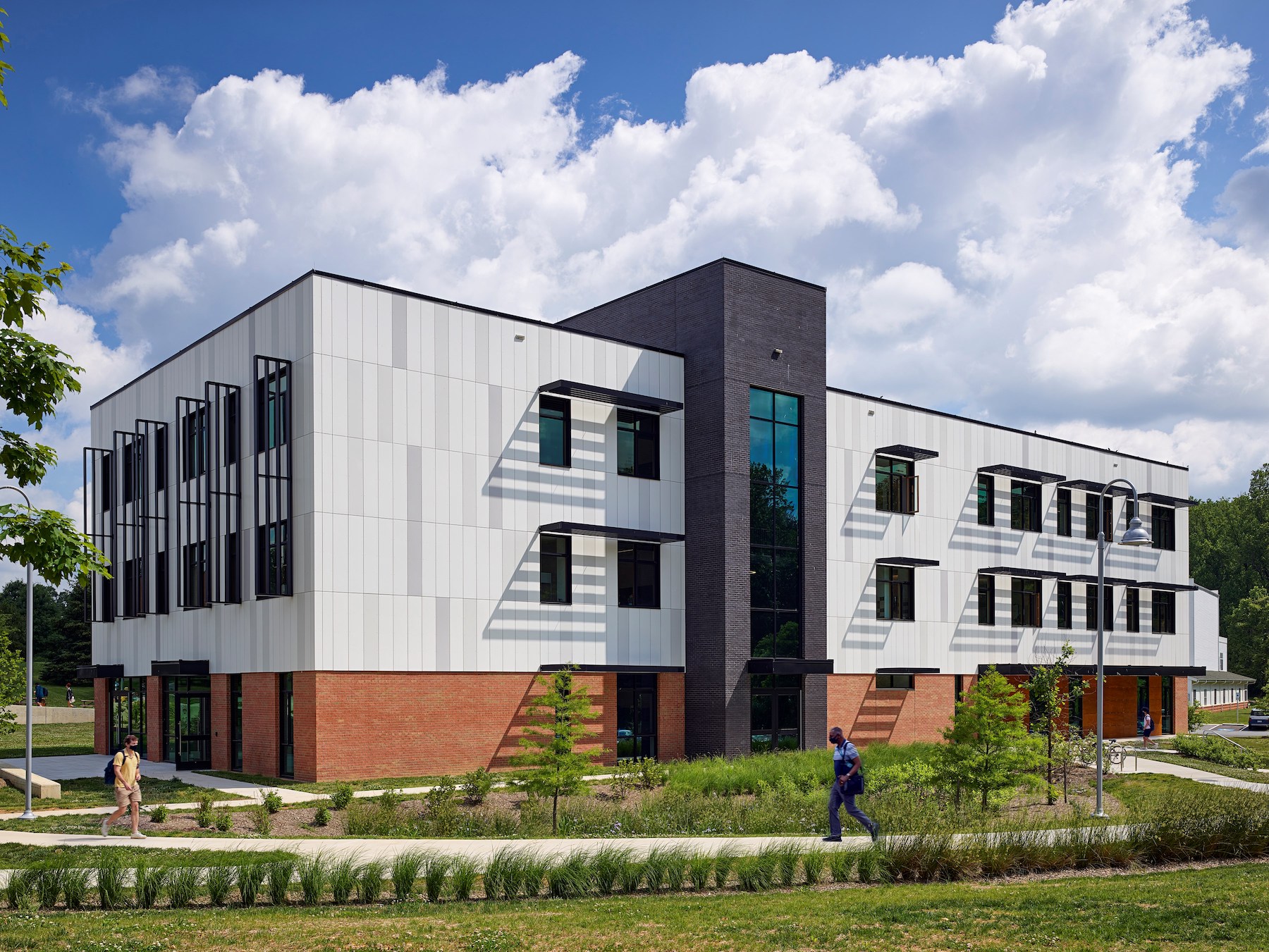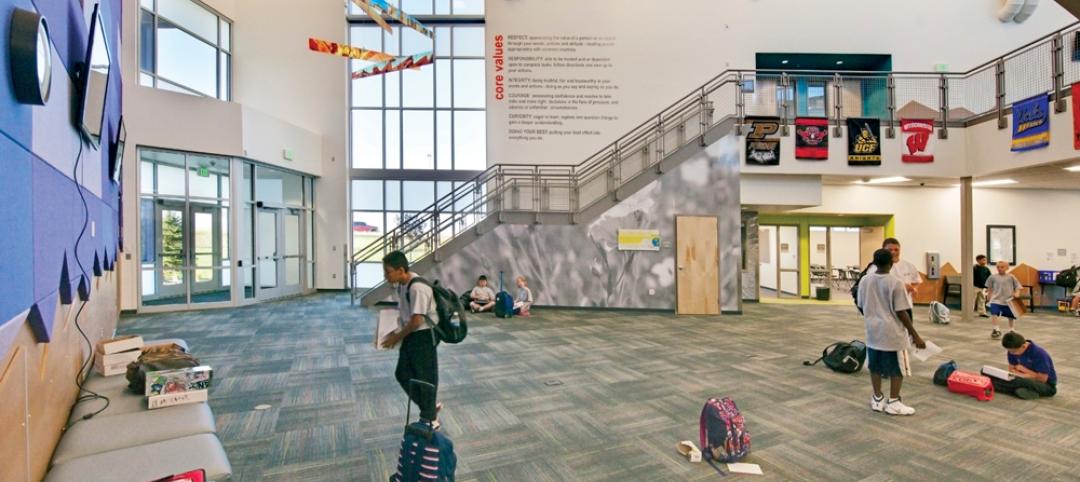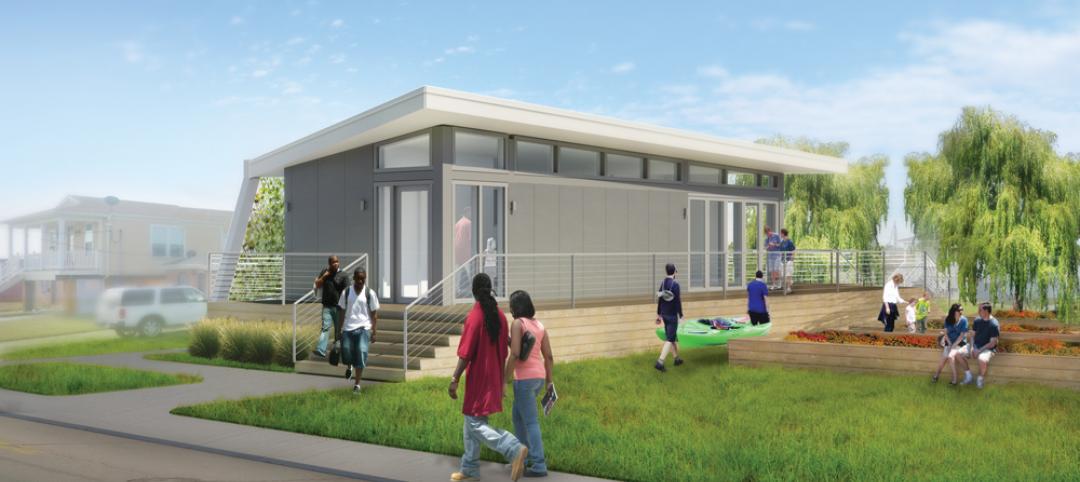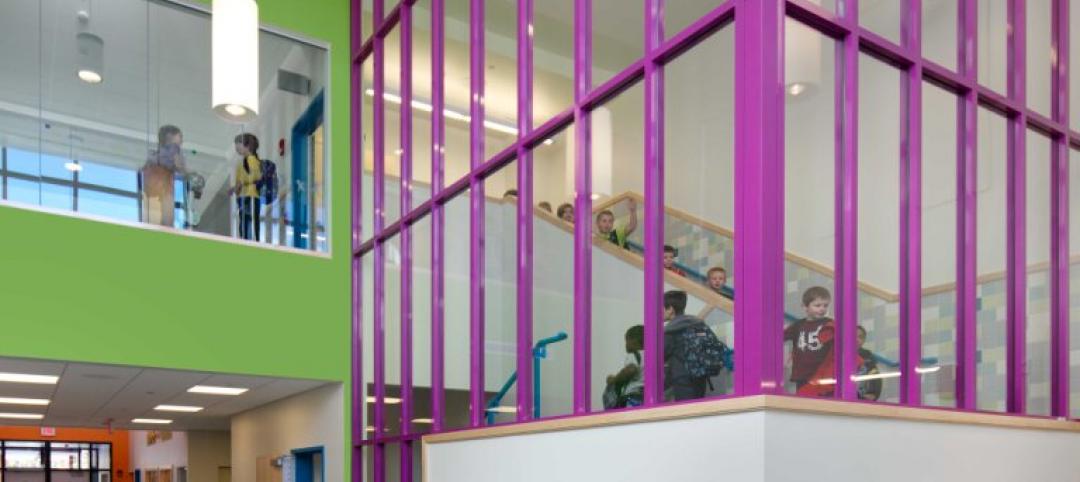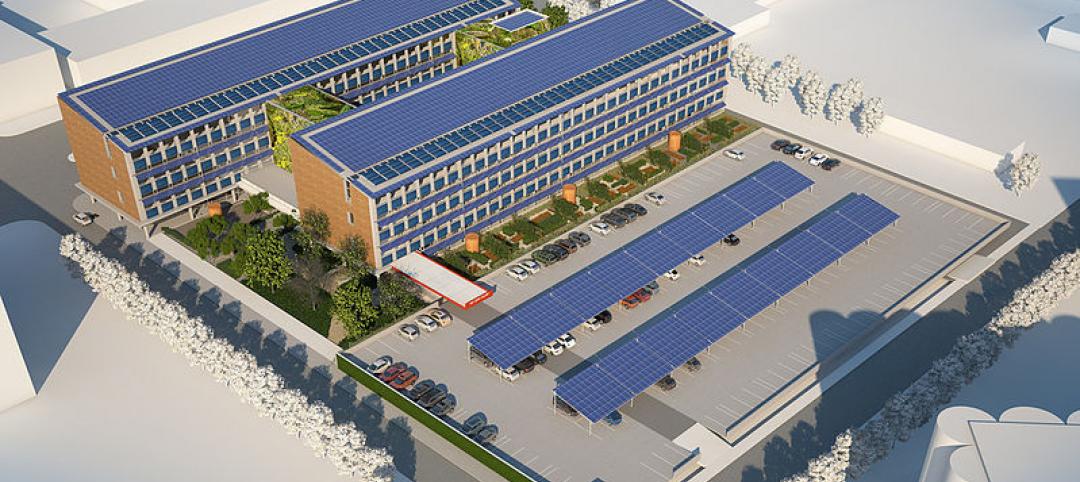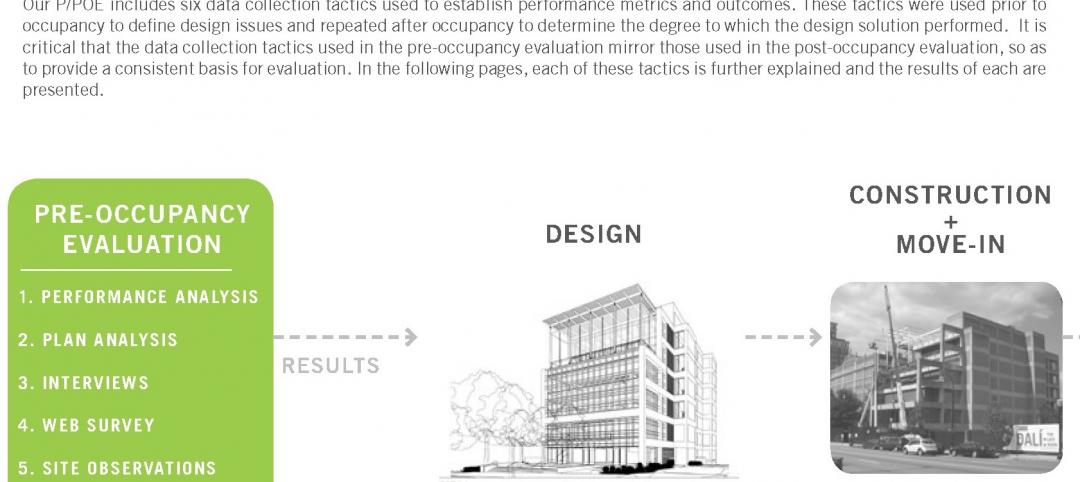Designed by Stantec, a Quaker high school is the first in the US to receive WELL Gold certification, which recognizes a commitment to occupants’ health and well-being. Part of the Sandy Spring Friends School (SSFS), the new Pen y Bryn Upper School serves students in grades 9 through 12. Stantec provided architecture, interior design, and engineering for the Upper School.
Founded in 1961, the SSFS campus houses multiple educational buildings for more than 650 students from preschool through 12th grade. SSFS sits on a pastoral 140-acre campus in Maryland, midway between Baltimore and Washington, D.C.
Stantec’s simple, elegant design is meant to align with the school’s Quaker values of simplicity, peace, integrity, community, equality, and stewardship. In the new Upper School, students and teachers have access to a variety of educational environments—traditional classrooms, open or closed collaboration areas, and social spaces—that offer dynamic lighting solutions and flexible, ergonomic furniture.
The design features a biophilic strategy involving both environmental elements and energy solutions. The building extends learning to the outdoors with a covered front porch beside a meditation garden, a sunny maker-space patio, and a roof terrace. Inside, expanses of floor-to-ceiling glass provide daylight and exterior views in the classrooms, collaboration areas, offices, and social areas. The interior also incorporates large areas of ash wood walls created from trees reclaimed onsite.
In addition to its WELL Gold design, the Upper School is engineered as a net zero energy-ready facility: The total amount of energy used by the building annually roughly equals the amount of renewable energy created on the site or nearby.
On the building team:
Owner: Sandy Spring Friends School
Design architect and architect of record: Stantec
MEP engineer: 2RW Consultants
Structural engineer: Keast & Hood
General contractor/construction manager: Keller Brothers, Inc.
Civil engineer: Stantec
Landscape architect: Brian J. Stephenson + Company
WELL building consultant: Delos Living
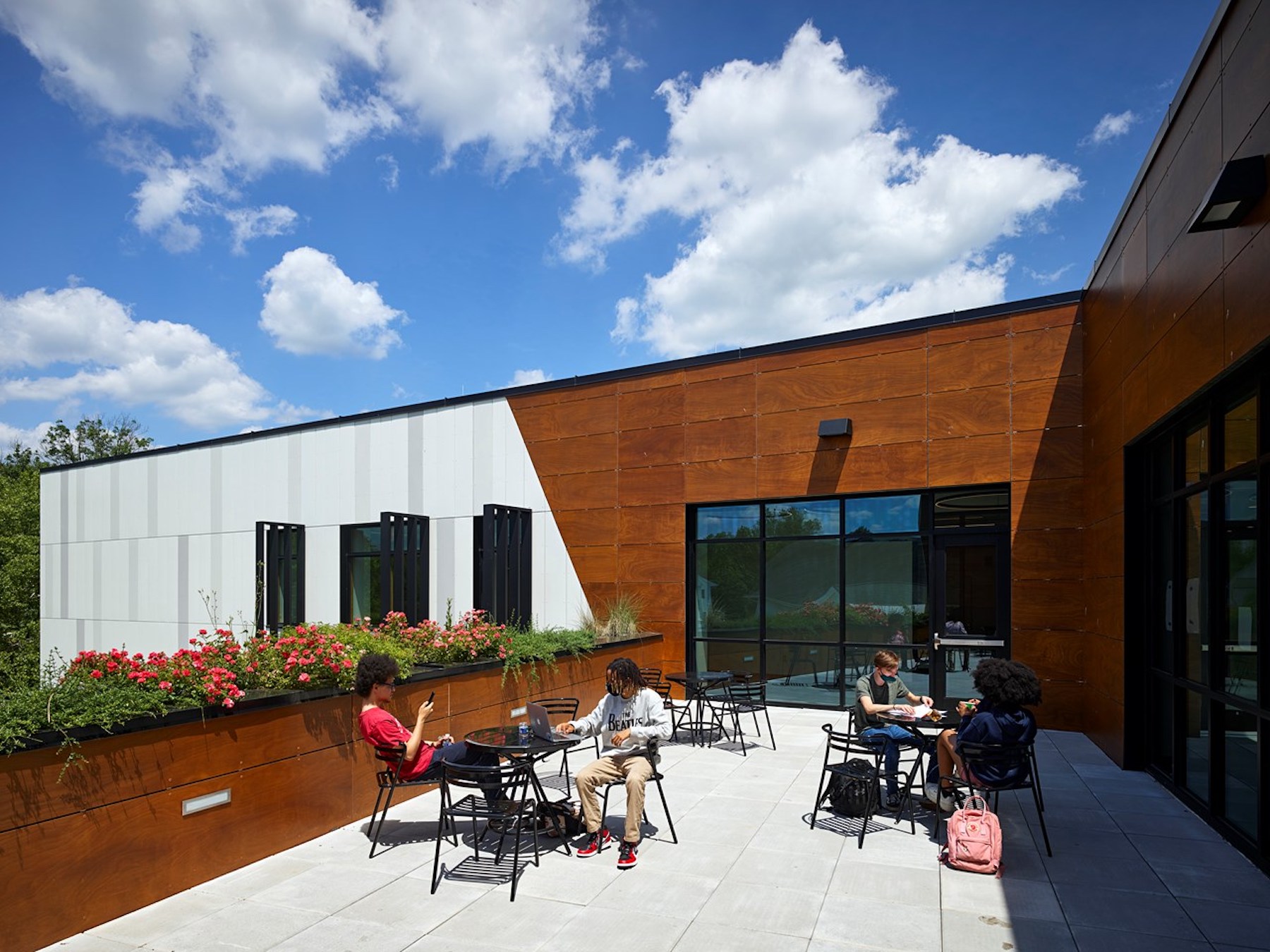
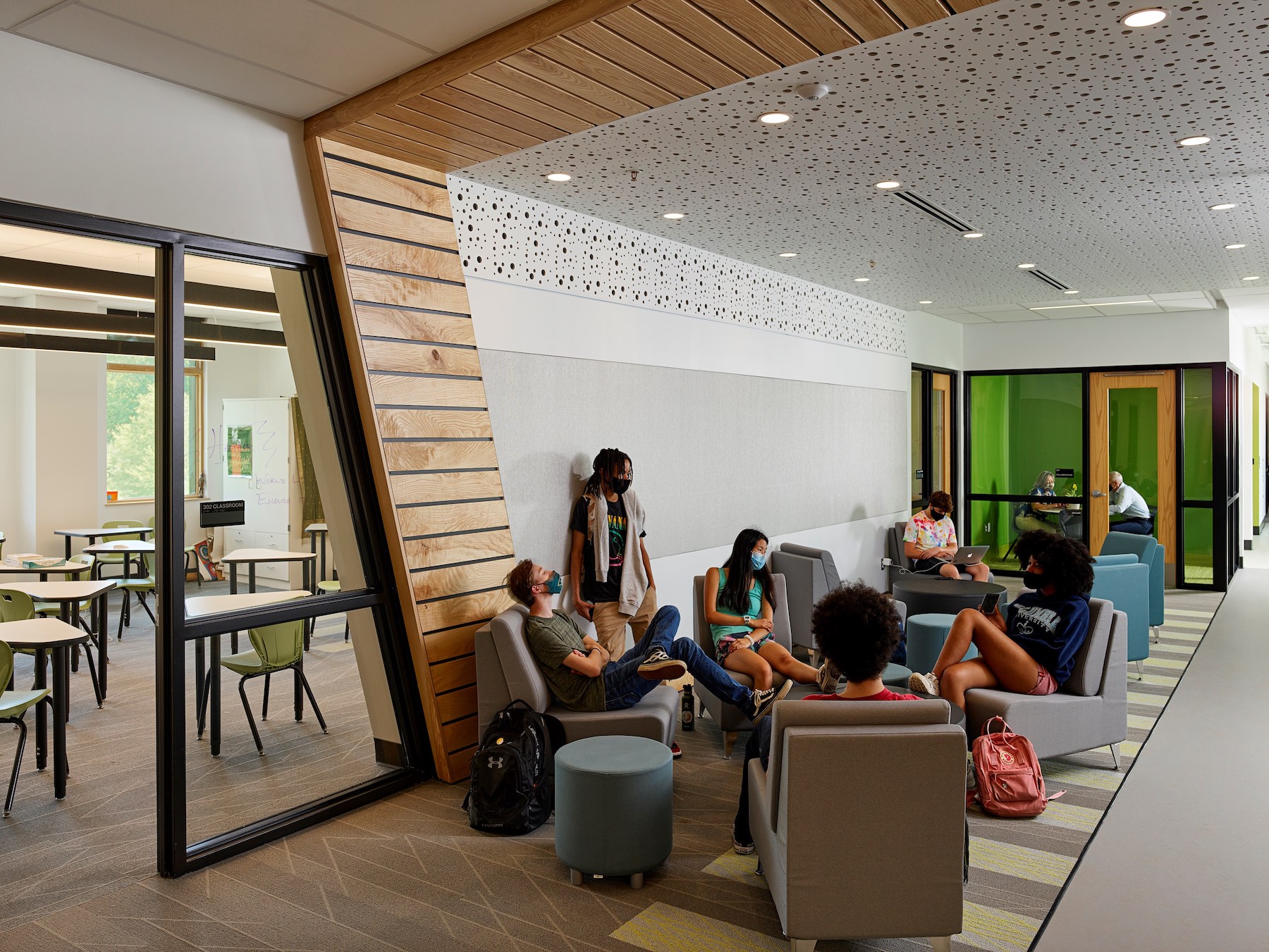
Related Stories
| Oct 26, 2014
Study asks: Do green schools improve student performance?
A study by DLR Group and Colorado State University attempts to quantify the student performance benefits of green schools.
| Oct 21, 2014
Check out BD+C's GreenZone Environment Education Classroom debuting this week at Greenbuild
At the conclusion of the show, the modular classroom structure will be moved to a permanent location in New Orleans' Lower 9th Ward, where it will serve as a community center and K-12 classroom.
| Oct 16, 2014
Perkins+Will white paper examines alternatives to flame retardant building materials
The white paper includes a list of 193 flame retardants, including 29 discovered in building and household products, 50 found in the indoor environment, and 33 in human blood, milk, and tissues.
Sponsored | | Oct 16, 2014
Mill Brook Elementary School colors outside the lines with creative fire-rated framing solution
Among the building elements contributing to the success of the elementary school’s public learning areas is a fire-rated stairwell that supports the school’s vision for collaboration. HMFH Architects designed the stairwell to be bright and open, reflecting the playful energy of students. SPONSORED CONTENT
| Oct 15, 2014
Harvard launches ‘design-centric’ center for green buildings and cities
The impetus behind Harvard's Center for Green Buildings and Cities is what the design school’s dean, Mohsen Mostafavi, describes as a “rapidly urbanizing global economy,” in which cities are building new structures “on a massive scale.”
| Oct 12, 2014
AIA 2030 commitment: Five years on, are we any closer to net-zero?
This year marks the fifth anniversary of the American Institute of Architects’ effort to have architecture firms voluntarily pledge net-zero energy design for all their buildings by 2030.
| Oct 9, 2014
Regulations, demand will accelerate revenue from zero energy buildings, according to study
A new study by Navigant Research projects that public- and private-sector efforts to lower the carbon footprint of new and renovated commercial and residential structures will boost the annual revenue generated by commercial and residential zero energy buildings over the next 20 years by 122.5%, to $1.4 trillion.
| Sep 29, 2014
Living Building vs. LEED Platinum: Comparing the first costs and savings
Skanska USA's Steve Clem breaks down the costs and benefits of various ultra-green building standards and practices.
| Sep 24, 2014
Architecture billings see continued strength, led by institutional sector
On the heels of recording its strongest pace of growth since 2007, there continues to be an increasing level of demand for design services signaled in the latest Architecture Billings Index.
| Sep 22, 2014
4 keys to effective post-occupancy evaluations
Perkins+Will's Janice Barnes covers the four steps that designers should take to create POEs that provide design direction and measure design effectiveness.


